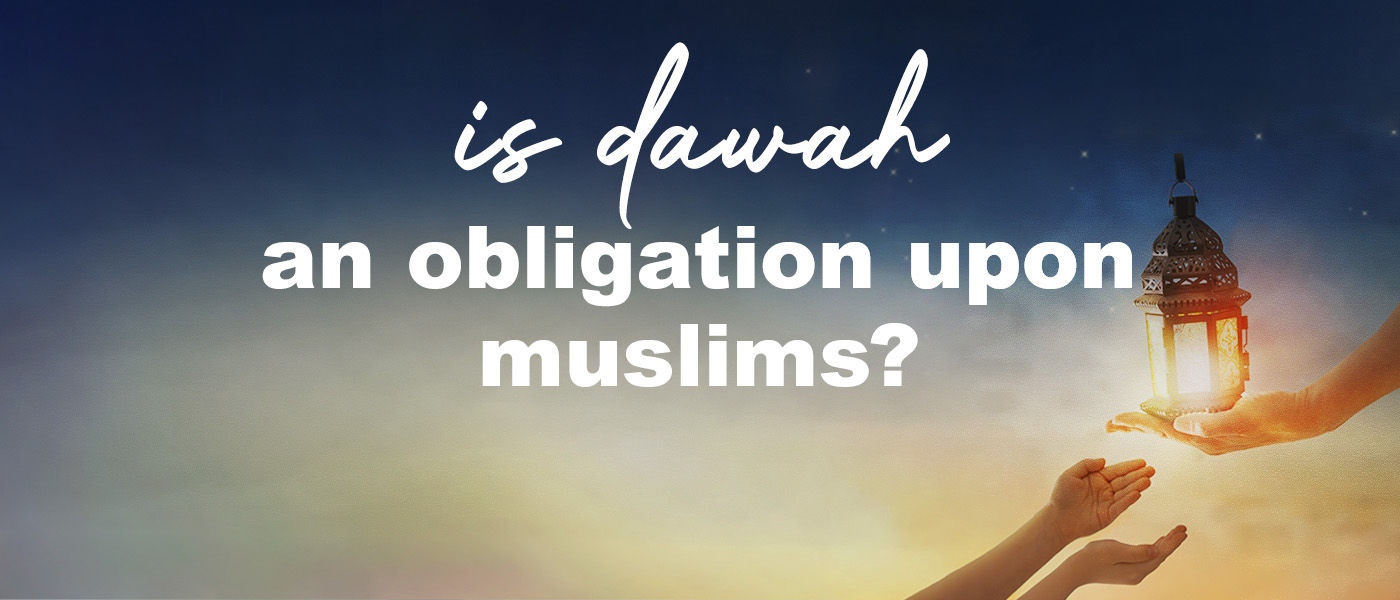Is Dawah an Obligation Upon Muslims?

The act of dawah—inviting others to Islam—holds a prominent place in Islamic tradition. But is it truly an obligation upon Muslims, or is it a noble act left to individual discretion? This question invites a deeper look into the essence of dawah and its significance in our lives today.
Is Dawah an Obligation?
The Quran and Hadith provide clear guidance on the importance of dawah: it is, indeed, a collective obligation (fard kifayah) upon the Ummah. Allah (SWT) states in The Quran: “Let there be a group among you who call ˹others˺ to goodness, encourage what is good, and forbid what is evil—it is they who will be successful” (The Clear Quran®, 3:104). This verse underscores the necessity of dawah as a communal responsibility. But, before this, Allah (SWT) also clearly challenges, “Who does more wrong than those who hide the testimony they received from Allah?” (The Clear Quran®, 2:140)—what is this if not a direct command to share The Message?
Additionally, the Prophet Muhammad (SAW) said, “Convey from me, even if it is one verse” (Sahih al-Bukhari). This Hadith emphasizes that all Muslims, regardless of their level of knowledge, are encouraged to participate in dawah in some capacity, sharing even the simplest teachings of Islam.
The True Spirit of Dawah
At its core, dawah is not just about spreading knowledge—it’s about embodying Islam’s principles of wisdom, patience, and kindness. The Quran advises, “Invite ˹all˺ to the Way of your Lord with wisdom and kind advice, and only debate with them in the best manner” (The Clear Quran®, 16:125). This guidance highlights that effective dawah requires thoughtful, respectful, and compassionate engagement with others.
Lessons from the Prophet (SAW)
The life of the Prophet Muhammad (SAW) offers profound lessons in dawah. His interactions were marked by empathy, sincerity, and an unwavering commitment to fostering understanding. In one instance, a Bedouin who urinated in the mosque was gently corrected by the Prophet (SAW), who emphasized patience over reprimand, exemplifying the importance of mercy in dawah. The Prophet (SAW) also said, “Whoever guides someone to goodness will have a reward like one who did it” (Sahih Muslim), encouraging Muslims to see dawah as a path to immense spiritual reward.
Dawah as a Bridge to Unity
So, is dawah truly an obligation upon Muslims? The Quran and Hadith suggest that it is—a communal responsibility that strengthens the fabric of the Muslim Ummah.
In today’s world, where misinformation about Islam can spread rapidly, dawah takes on a renewed importance. It serves as a means to clarify misconceptions and present an authentic understanding of Islam.
So How Can You Do Dawah
For those inspired to embrace dawah, here are some practical tips:
- Start with your character: Let your actions reflect Islamic values like kindness, honesty, and compassion.
- Use wisdom and patience: Approach conversations with respect and understanding, avoiding argumentation.
- Leverage technology: Platforms like social media can amplify your efforts and reach broader audiences.
- Be consistent and sincere: Even small, consistent acts of dawah can have a profound impact.
- Volunteer with dawah organizations: Your time is your most valuable commodity—give from it when you can to groups focused on dawah.
- Support dawah initiatives: If you simply can’t do dawah, donating to those doing it enables them and and counts you among them.
Remember, beyond the question of obligation lies the deeper purpose of dawah: to share the beauty of Islam and create a ripple effect of understanding, empathy, and compassion. May we all see a more tolerant and peaceful world, Ameen.




